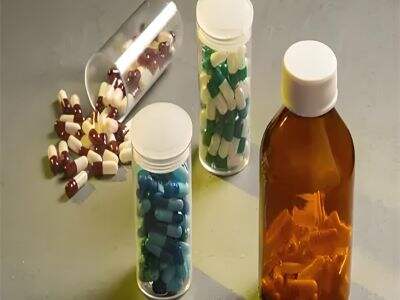Pharmaceutical companies have a choice between plastic and glass bottles in medicine storage. Each type of bottle has their own benefits and drawbacks, making it critical for businesses like Nantongxinde to weigh factors such as durability, environmental impact, cost effectiveness, possible risks and its logistical role in making this decision.
The plastic and glass medical vials are stronger and safer.
Even plastic water bottles, which are lightweight and less likely to shatter than glass bottles. But they are easily scratched, potentially leading to contamination in the product within. Glass bottles, on the other hand are harder and more scratch resistant. They also give a more effective barrier for air and moisture, thus extending the shelf life of the medicine. Typically, in terms of reliability, glass bottles are the preferred choice to use for keeping medicines away securely.
Identifying The Environmental Impact Between Plastic Vs Glass Packaging In The Pharmaceutical Industry
Plastic bottles are usually crafted from petrol, a non-renewable useful resource that pollutes the air and will increase greenhouse fuel emissions. In addition they are not easily recyclable and can end up in landfills or the ocean, harmful to the environment. Glass, on the other hand, is made from sand; an abundant and renewable natural resource. The glass vials are completely recyclable as well – they can be recycled and reused multiple times without depleting their quality, making them a greener choice for pharmaceutical packaging.
When It Comes to Glass vs. Plastic Bottles, Big Pharma Wants to Save Where They Can
Price — plastic bottles are usually less expensive to be created is transported than glass ones. However, they may need an additional layer of protection packaging to prevent the medicine from in-transit damage. Although glass bottles can be more expensive initially, they could save money over time in terms of the packaging needed. On top of that, glass bottles are reusable and recyclable which means lower costs and less waste.
Exploring the possible risks and advantages of both plastic bottles and glass bottles for health care product packaging
Very light in weight and unbreakable so, easy to ship. However, they could leak harmful chemicals over time into your medicine. Glass bottles will not, and are thus healthier in order to keep medications. They also offer a better barrier against light and air that can damage the quality of drug. The glass packaging bottles are generally considered safer and less toxic for your health due to the nature of the material used;
Logistical Considerations for Pharmaceutical Companies in Choosing Bulk Packaging Solutions
When it comes to bulk packaging, pharmaceutical companies have to think through a number of factors, in particular whether to choose plastic or glass bottles. This can relate to the bottler costs by weight or volume, interstate transport and warehousing costs including recycling proof. Plastic bottles are lighter and less bulky than glass, so they require less transportation, storage space. However, glass bottles may offer the medicine greater protection and can be glass recycled more readily. This means companies like Nantongxinde have to consider the logistics of what is going on and carefully make their choice in regards to the best form of packaging for their products.
Finally, to store medicine, plastic and glass bottles have their own advantages and disadvantages. Manly Taste: Even though plastic bottles may be cheaper and lighter, the fact is that glass bottles are more durable, sustainable, eco-friendly, and better to store medicines. At the end of the line, pharmaceutical companies have to weigh how cost-effective, environmentally friendly, safe and reliable one type of packaging is compared with another for large containers like plastic or glass bottles.
Table of Contents
- The plastic and glass medical vials are stronger and safer.
- Identifying The Environmental Impact Between Plastic Vs Glass Packaging In The Pharmaceutical Industry
- When It Comes to Glass vs. Plastic Bottles, Big Pharma Wants to Save Where They Can
- Exploring the possible risks and advantages of both plastic bottles and glass bottles for health care product packaging
- Logistical Considerations for Pharmaceutical Companies in Choosing Bulk Packaging Solutions

